Yuhong Fan
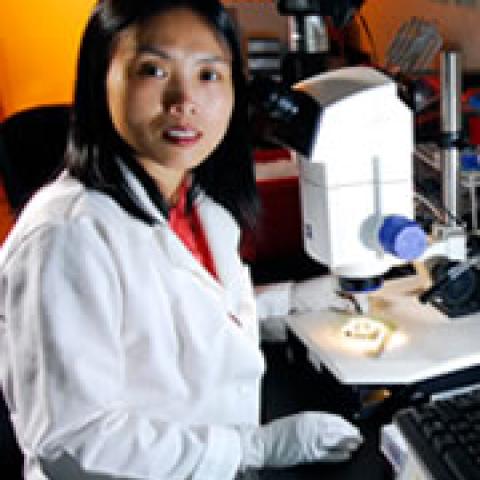


Christoph Fahrni earned a master’s degree in chemistry from the Federal Institute of Technology (ETH, Switzerland) and a Ph.D. degree in chemistry from the University of Basel (Switzerland). After working as a postdoctoral fellow at Northwestern University (Evanston, IL), he joined the School of Chemistry and Biochemistry at the Georgia Institute of Technology in 1999.
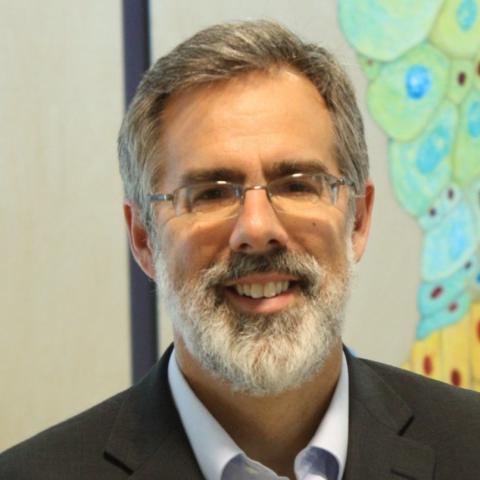
Prof. Ethier was originally trained as a mechanical engineer, receiving his Ph.D. from MIT in 1986 working in the lab of Roger D. Kamm. He then joined the University of Toronto, where he was a Professor of Bioengineering, Mechanical Engineering and Ophthalmology, and latterly the Director of the Institute of Biomaterials and Biomedical Engineering. Prior to joining Georgia Tech/Emory, Professor Ethier was the Head of the Department of Bioengineering at Imperial College, London from 2007-12.
His research is in the biomechanics of cells and whole organs. His specific research topics include glaucoma (biomechanics of aqueous humour drainage in the normal and glaucomatous eye, and the mechanical and cellular response of optic nerve tissues to intraocular pressure), study of hemodynamic basis of arterial disease.

Dr. Stanislav Emelianov is a Joseph M. Pettit Endowed Chair, Georgia Research Alliance Eminent Scholar, and Professor of Electrical & Computer Engineering and Biomedical Engineering at the Georgia Institute of Technology. He is also appointed at the Emory University School of Medicine, where he is affiliated with Winship Cancer Institute, Department of Radiology, and other clinical units. Furthermore, Dr. Emelianov is Director of the Ultrasound Imaging and Therapeutics Research Laboratory at the Georgia Institute of Technology focused on the translation of diagnostic imaging & therapeutic instrumentation, and nanobiotechnology for clinical applications.
Throughout his career, Dr. Emelianov has been devoted to the development of advanced imaging methods capable of detecting and diagnosing cancer and other pathologies, assisting treatment planning, and enhancing image-guided therapy and monitoring of the treatment outcome. He is specifically interested in intelligent biomedical imaging and sensing ranging from molecular imaging to small animal imaging to clinical applications. Furthermore, Dr. Emelianov develops approaches for image-guided molecular therapy and therapeutic applications of ultrasound and electromagnetic energy. Finally, nanobiotechnology plays a critical role in his research. In the course of his work, Dr. Emelianov has pioneered several ultrasound-based imaging techniques, including shear wave elasticity imaging and molecular photoacoustic imaging. Overall, projects in Dr. Emelianov's laboratory, which focuses on cancer and other diseases, range from molecular imaging to functional imaging and tissue differentiation, from drug delivery and release to image-guided surgery and intervention.
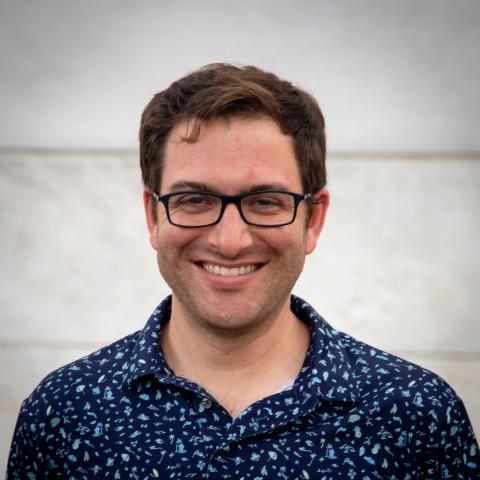
The Emanuel lab investigates how the sense of touch is generated in the mammalian brain by combining modern neurophysiology with mouse genetic manipulations. Dr. Emanuel joined Emory University School of Medicine in January 2023 as an Assistant Professor in the Department of Cell Biology. Before joining Emory, he completed his postdoc at Harvard Medical School during which he investigated the contributions of mechanoreceptor subtypes to the central representation of touch. Dr. Emanuel earned his Ph.D. from Harvard University by studying the biophysical properties of retinal ganglion cell photoreceptors.
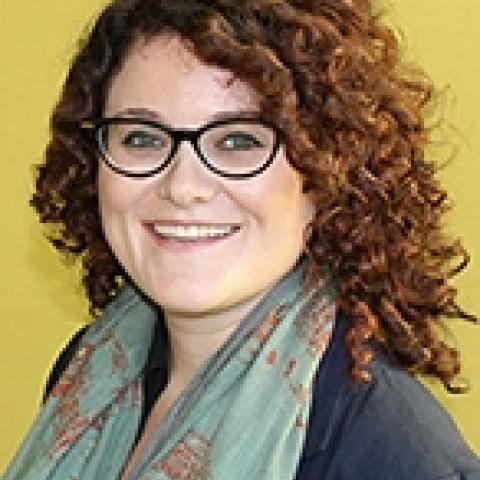
Dyer’s research interests lie at the intersection of machine learning, optimization, and neuroscience. Her lab develops computational methods for discovering principles that govern the organization and structure of the brain, as well as methods for integrating multi-modal datasets to reveal the link between neural structure and function.
Eva Dyer’s research combines machine learning and neuroscience to understand the brain, its function, and how neural circuits are shaped by disease. Her lab, the Neural Data Science (NerDS) Lab, develops new tools and frameworks for interpreting complex neuroscience datasets and building machine intelligence architectures inspired by the brain. Through a synergistic combination of methods and insights from both fields, Dr. Dyer aims to advance the understanding of neural computation and develop new abstractions of biological organization and function that can be used to create more flexible AI systems.
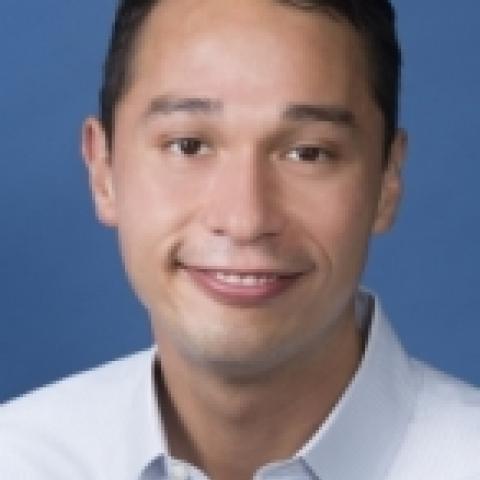
Erik C. Dreaden joined the Wallace H. Coulter Department of Biomedical Engineering at Georgia Institute of Technology and Emory University in 2017. Dr. Dreaden also holds a joint faculty appointment in the Department of Pediatrics at the Emory University School of Medicine where he collaborates with researchers at Children's Healthcare of Atlanta and the Aflac Center for Cancer and Blood Disorders. Dr. Dreaden's research seeks to apply principles of molecular and nanoscale engineering to improve the therapeutic potential of drug combinations, vaccines, and immunotherapies directed against pediatric and adult cancers.
Prior to joining Emory and Georgia Tech, Dr. Dreaden was a postdoctoral fellow at the Koch Institute for Integrative Cancer Research at MIT, where his research focused on the development of polymer-based technologies for nucleic acid and rational combination cancer therapies.
Dr. Dreaden is a member of the Cancer Immunology Research Program at the Winship Cancer Institute of Emory University. He also holds memberships in the Biomedical Engineering Society, American Institute of Chemical Engineers, American Association of Cancer Research, Materials Research Society, American Association for the Advancement of Science, and American Chemical Society.
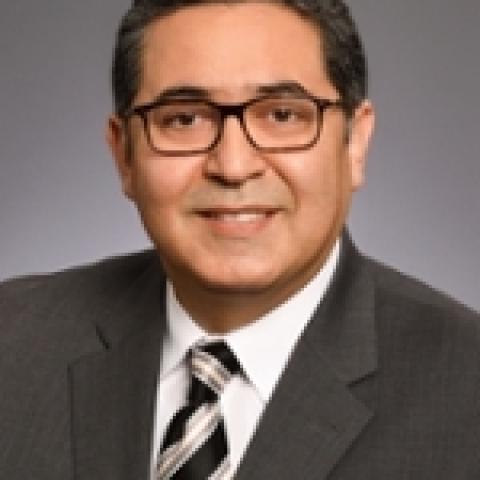
Hicham Drissi is a professor in the Department of Orthopaedics at Emory University School of Medicine. He holds a Ph.D. from Paris Descartes University.

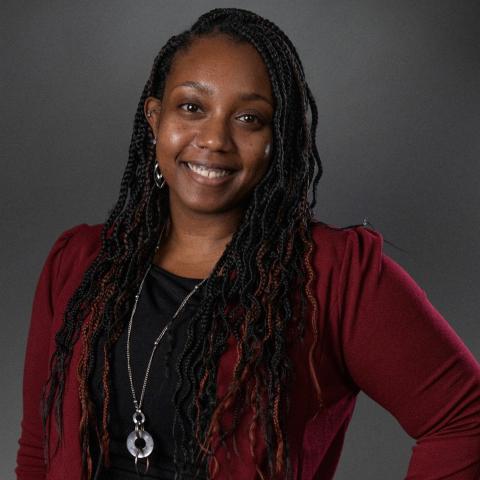
Dr. Simone Douglas-Green (@DrBlackBoots on Twitter/X and Instagram) is a new Assistant Professor in the Wallace H. Coulter Department of Biomedical Engineering at Georgia Tech and Emory University, where she has been named a BME Distinguished Faculty Fellow. She received her B.S. in Biomedical Engineering from the University of Miami, and her Ph.D. in Biomedical Engineering from the joint program at Georgia Tech and Emory University. Dr. Douglas-Green’s professional and scholarly development as a doctoral and postdoctoral trainee has been supported by a number of awards including the Alfred P. Sloan Foundation's Minority Ph.D. (MPHD) Fellowship, NASEM Ford Foundation Postdoctoral Fellowship, and Burroughs Wellcome Fund Postdoctoral Enrichment Program (PDEP). The Douglas-Green Lab focuses on developing tools/techniques to study how biology interacts with nanoparticles with an emphasis on understanding person and disease specific proteins coronas. Her goal is to train the next generation of engineers to be “EPIC”- engineering with purpose, intentionality, and compassion.